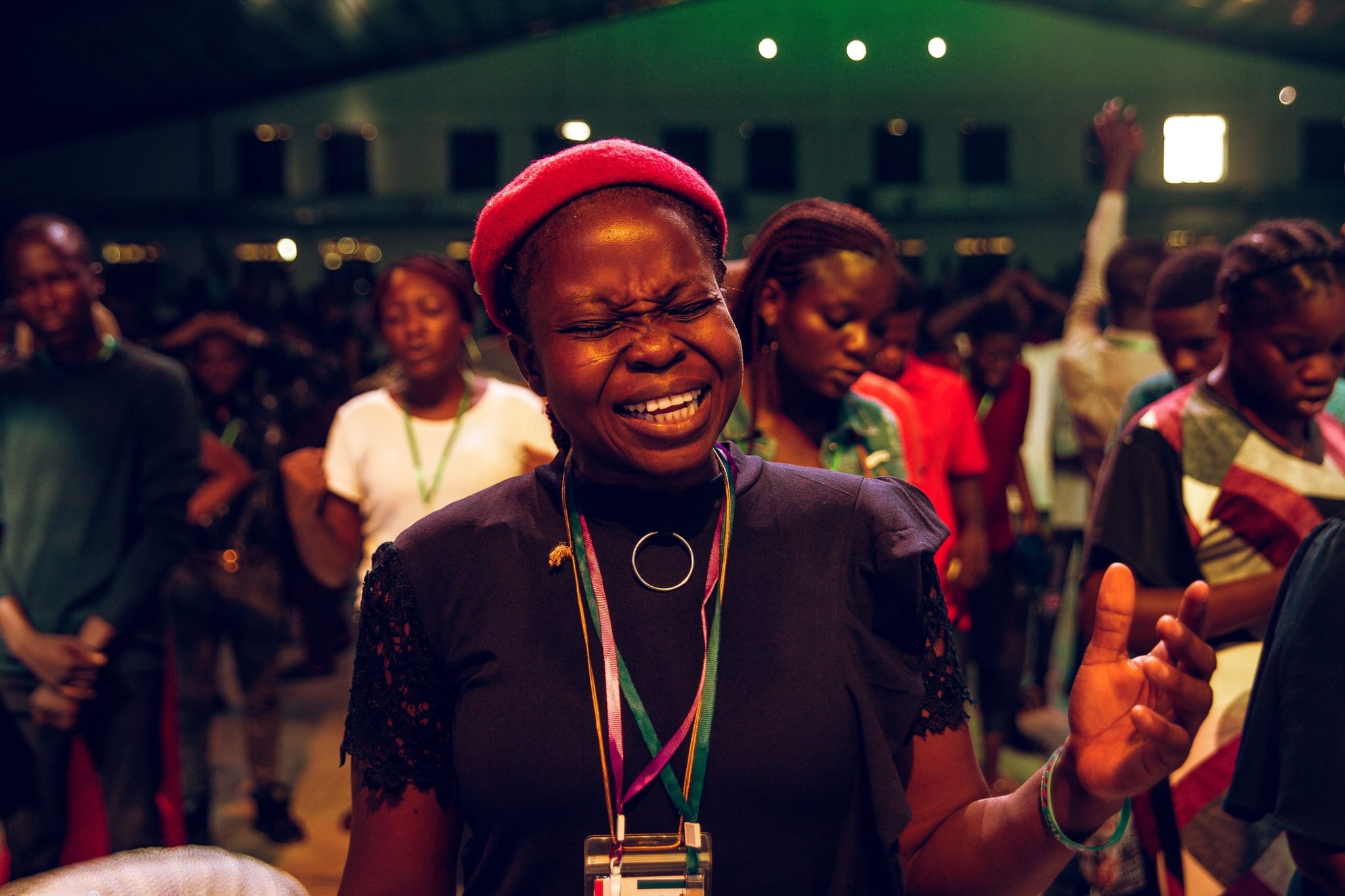As this series explores the meaning of the Lord’s Prayer line by line, we consider what each petition means and how to apply it to our own lives. A powerful tool for shaping how we think about God, ourselves, and the world, the Lord’s Prayer teaches us how to pray and leads us into a deeply meaningful way of talking to and hearing from the Lord.
“Your kingdom come, your will be done, on earth as in heaven”
When there’s a need or request to pray in a group setting, the person designated to lead may opt for reciting the Lord’s Prayer in unison, assuming it’s a “safe choice.” Everyone should be okay with that, the person thinks.
But more than any of the petitions in the Lord’s Prayer, praying “your kingdom come, your will be done” is radical, demanding, and costly. That’s the consistent message of Jesus in his teaching about the kingdom of God.
“Your kingdom come”
According to Mark, Jesus launches his public ministry by announcing, “The kingdom of God has come near; repent, and believe in the good news” (Mark 1:14-15). If we are to enter and live into the demands of God’s kingdom, we must repent—turn around and go in the opposite direction of our self-centered inclinations—in order to follow Jesus.
Submitting to the ways of Jesus won’t help us make friends with the world; instead, we’ll be joining a revolution against the kingdoms of the world. This is where the Lord’s Prayer gets political. Think of King Herod, who was so threatened by the birth of Jesus that he set out to kill him (Matthew 2:3, 13-18). Or think of the devil, who sought to tempt Jesus by giving him all the kingdoms of the world if he would worship him (Luke 4:5-8). Both Herod and the devil understood full well that Jesus was a threat to those who rule.
The tendency of many Christians today is to domesticate Jesus and tame his radical message by portraying him as a gentle person whose sweet words comforted the distressed and whose death provided forgiveness of our sins. While true, that’s not a complete picture of Jesus, and it’s certainly not what praying “your kingdom come” is advocating. The teaching of Jesus in the Beatitudes (Matthew 5:3-12) hardly makes the case that the kingdom ushers in an easy way of life. In fact, the Beatitudes suggest that little about God’s kingdom is self-evident.
Where in this world do you see a need for the coming of God’s kingdom and justice? If we genuinely pray for that, it should compel us to actively bring it into being through what we do and say, even when it’s political. Prayer is not wishful thinking.
“Your will be done”
Sometimes this part of the petition is understood as a passive response rather than a call to action. Actually, “your will be done” is a prayer of obedience, not resignation.
Think of Jesus’s struggle in the Garden of Gethsemane the night before he was put to death. Knowing the agony of what was coming, Jesus prayed, “Father, if you are willing, remove this cup from me; yet, not my will but yours be done” (Luke 22:41-42). In his internal struggle, Jesus did not submit to the inevitable but carried out and did the will of the Father. It was an act of volition and determined commitment. By pledging what God wants us to do—in praying “your will be done”—we are renouncing our own wills and committing to actively doing God’s will.
“On earth as in heaven”
We pray for the in-breaking of God’s kingdom here and now, not simply in some far-off future that we never expect to see on this side of eternity. As surely as Jesus has come and this world has already experienced a resurrection, we know that the coming of God’s kingdom is inevitable. But our prayer is that we will experience more and more signs of this kingdom in this life, just as we will know them fully in the life to come.
This is the “already but not yet” aspect of God’s kingdom reign. By his death, resurrection, and ascension, Jesus has broken the power of evil and he reigns in power. The battle has been won, but the war is not over. According to Martin Luther’s Small Catechism, “God’s good and gracious will comes about without our prayers, but we ask in this prayer that it may also come about in and among us.”
As mentioned in the introduction to this series, prayer is not getting what we want but becoming what God wants us to be. It’s about being reformed and transformed, whether we are seekers or mature disciples. Prayer is bending our wants to God’s wants and living out those holy intentions so that they become as real on earth as they are in heaven.
In praying “your kingdom come, your will be done, on earth as in heaven,” we ask God to save us from any unwillingness to learn God’s will and embrace God’s kingdom; to save us from choosing our own plans and desires; and to save us from trying to limit the scope of God’s purposes.
Does that sound like a “safe choice” to you? Are we willing to practice what we pray when we say the Lord’s Prayer?
Read the rest of the Lord’s Prayer series
- Introduction to the Lord’s Prayer
- First petition: “Our Father in heaven, hallowed be your name”
- Second petition: “Your kingdom come, your will be done, on earth as in heaven”
- Third petition: “Give us this day our daily bread”
- Fourth petition: “Forgive us our sins, as we forgive those who sin against us”
- Fifth petition: “Save us from the time of trial and deliver us from evil”
- Sixth petition: “For the kingdom, the power, and the glory are yours, now and forever. Amen.”

Stephanie Soderstrom
Stephanie Soderstrom is coordinator for Short-term Mission for the Reformed Church in America. You can connect with her by email at ssoderstrom@rca.org.

Terry DeYoung
Terry A. DeYoung served as coordinator for disability concerns for the Reformed Church in America for 13 years before his retirement in 2023. His wife, Cindi Veldheer DeYoung, is a former hospital chaplain who lives with significant hearing loss. They live in Holland, Michigan, with their lively Brittany Spaniel, Dexter. Among other things, they enjoy traveling, boating, baseball, craft beer, and all things Chicago.



